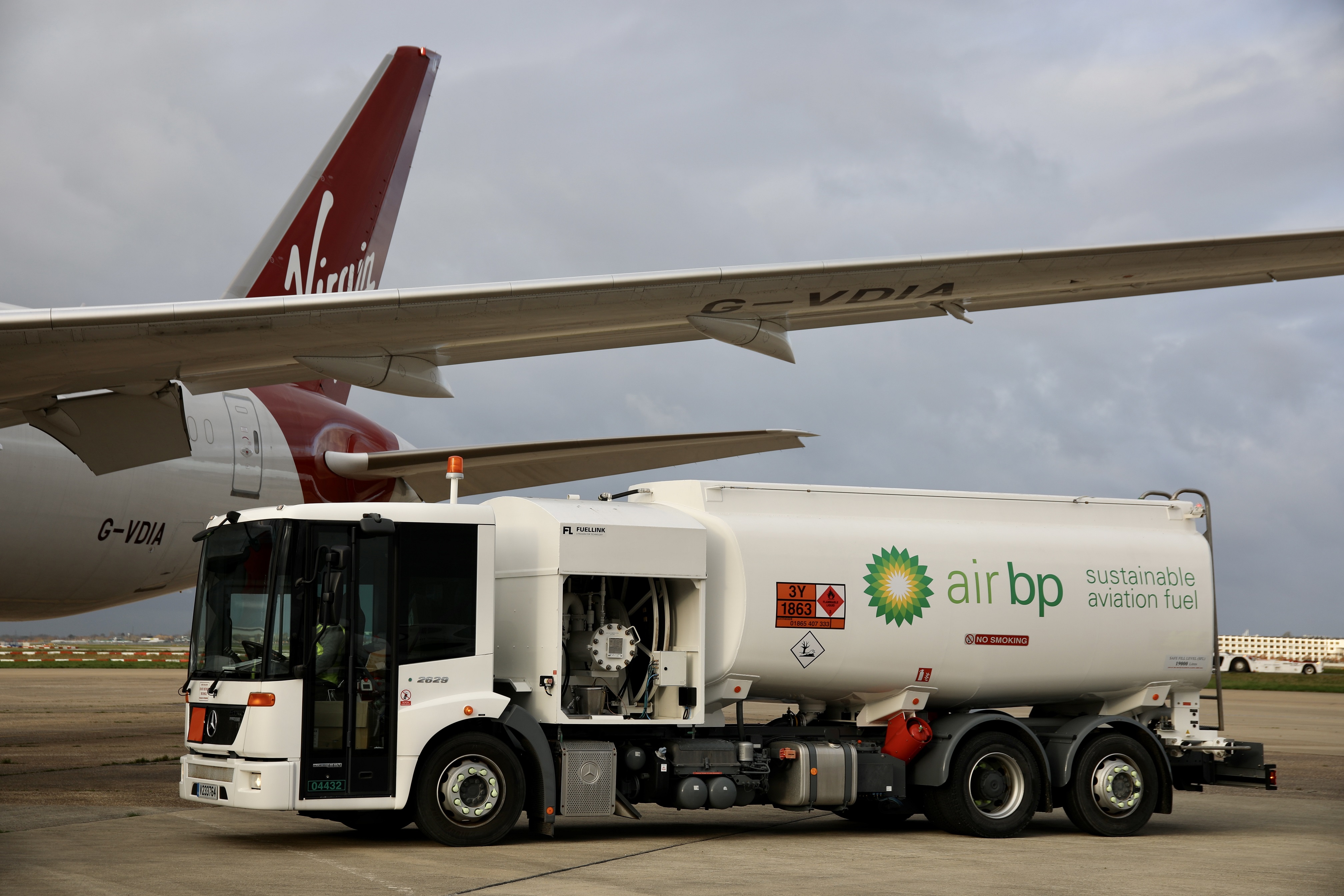Virgin Atlantic’s inaugural 100% sustainable aviation fuel-powered flight, due to take off from London Heathrow to New York JFK today, marks a milestone for the first commercial airliner to complete a transatlantic flight using 100% SAF.
Partly funded by the UK Department for Transport, Flight100 – operated with a Boeing 787 Dreamliner using Rolls-Royce Trent 1000 engines - marks what Virgin Atlantic describes as the ‘culmination of a year of radical collaboration, to demonstrate the capability of SAF as a safe drop-in replacement for fossil derived jet fuel’.
Although normally only mandated for blends of up to 50% (alongside conventional fossil fuel-derived jet fuels), Flight100 received special dispensation for the flight (in the form of a UK Civil Aviation Authority Permit to Fly) following a programme of technical reviews by the regulator.
The consortium of companies involved in preparation for the flight include Boeing, Rolls-Royce and AirBP, who supplied the flight’s fuel: a blend of 88% HEFA (Hydroprocessed Esters and Fatty Acids) and 12% SAK (Synthetic Aromatic Kerosene). The aircraft used was on lease from Griffin Global Asset Management, with president Marc Baer describing the flight as "an important milestone for both Griffin and Virgin Atlantic"; reinforcing's Griffin's "commitment to be at the forefront of partnering with airlines in their transition to operating the newest technology aircraft and enabling their drive towards net-zero sustainability in the future”.
Noting that “Flight100 proves that [SAF] can be used as a safe, drop-in replacement for fossil-derived jet fuel,” Shai Wess, chief executive officer at Virgin Atlantic, added: “There’s simply not enough SAF and it’s clear that in order to reach production at scale, we need to see significantly more investment.” She elaborated that “regulatory certainty and price support mechanisms, backed by government,” are essential to the successful scaling-up of SAF manufacture.
Sir Richard Branson, founder of Virgin Atlantic and a passenger on the (admittedly not commercially-advertised) flight, noted that “the spirit of innovation is getting out there and trying to prove we can do things better for everyone’s benefit”.
Flight100 also aims to assess how SAF’s use affects the flight’s non-carbon emissions with the support of consortium partners ICF, Rocky Mountain Institute (RMI), Imperial College London and University of Sheffield.
